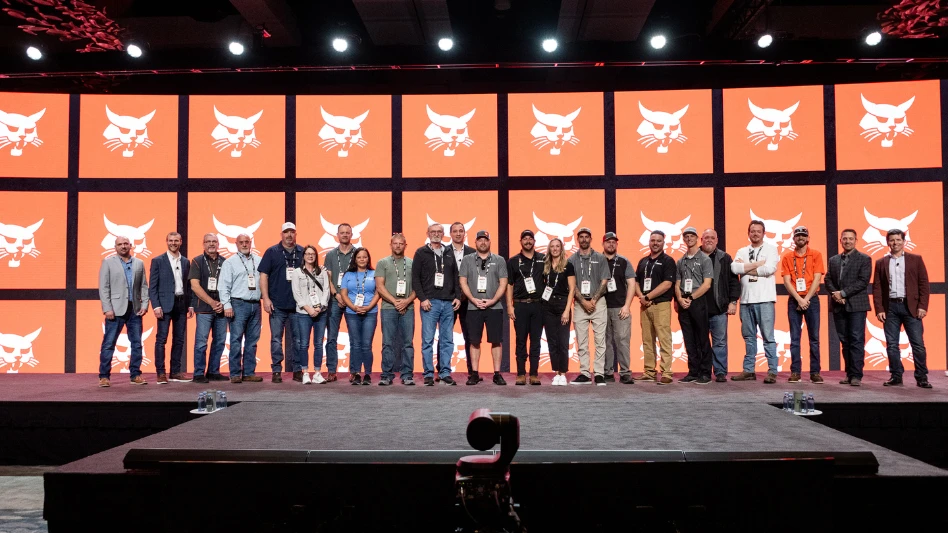Lawn care professionals rarely claim that insect infestations on ornamentals are their most common nuisance. But that does not diminish the significance of these problems, given the financial and emotional value customers often attach to their trees and shrubs.
|
|
|
|
Insect control on ornamentals presents a host of challenges, chief among them being product selection. While many insecticides carry a label for ornamental application, truly effective control tends to be limited to select insects, and there’s always the fear of damaging the plant with the application.
All of this points to the value of incorporating horticultural oils as part of your arsenal for combating the insects attacking your ornamental plants.
Horticultural oils are simpler products than most insecticides. This simplicity extends to their mode of action as well. Whereas other insecticides attack an insect’s central nervous system or chemically inhibit its ability to molt and grow, an application of a horticultural oil simply covers any insect on the plant at the time of application and suffocates it. Horticultural oils’ lack of induced chemical reaction on target pests even earns the products classification as a “soft pesticide” when compared to traditional synthetic products.
Control occurs within 24 hours, end of story. Of course, applying any control product is never that simple. Decisions still have to be made and variables weighed.
As with any insecticide, the decision making starts with selecting the right horticultural oil. These products are simply highly refined petroleum oil, and the key when selecting an oil is finding one that is clearly a horticultural or summer oil and that offers an unsulfonated residue (USR) content of at least 92. This number speaks to the product’s sulfur content, and higher USR contents are better because excessive sulfur levels can inhibit the oil’s ability to enter into solution in a tank mix with water.
Because the oils suffocate their targets, product labels are rarely limited to different pests or plants. But that doesn’t mean all oils control all ornamental pests. Horticultural oils are best used against mites, scale, aphids and some caterpillar eggs. And while applications used to be for dormant plants only, improvements in the refining process for horticultural oils now makes them suitable for applications to actively growing plants as well.
Horticultural oils work well on a variety of plants from woody ornamentals to flowers, yet certain plants do not react well to these applications, and the list includes hickories, maples, black walnut, ferns, cryptomeria, smoketree, azaleas, beech, Japanese holly, redbud, savin junipers, spruce, Douglas-fir, blue-hued conifers and any plant suffering from drought.
Also, avoid applications when temperatures fall below freezing, which can result in oil deposits forming on the plant, or climb above 85 F, as phytotoxicity can occur.
Another key to using horticultural oils effectively is understanding their limitations. The oils are essentially contact insecticides – they will control whatever they hit, but they do not offer residual control. The oil needs to coat the insect to suffocate it, so insects arriving on the plant after the application will not be affected. That’s why horticultural oils are very targeted applications. They should be used immediately upon identifying a problematic infestation, but they should never be viewed as preventive products.
Though horticultural oils should not be viewed as silver bullets, they can be a valuable addition to your insect control effort on ornamental plants.
J.B. Toorish and Brian Kelley are part of LESCO’s Tech Services Department. They can be reached at fromthefield@gie.net or at 800/321-5325 ext. 3150 to answer technical questions.

Explore the January 2007 Issue
Check out more from this issue and find your next story to read.
Latest from Lawn & Landscape
- North by Northwest's charitable act for the Ronald McDonald House Charities
- Coxreels expands V-100 Series product line
- Landscape Workshop expands with 2 acquisitions
- Wilson360 adds Daniel Grange as new consultant
- Batman and business
- CH Products releases new tree stabilizer
- Savannah Bananas founder Jesse Cole to speak at Equip Exposition
- Catch up on last year's Benchmarking report







